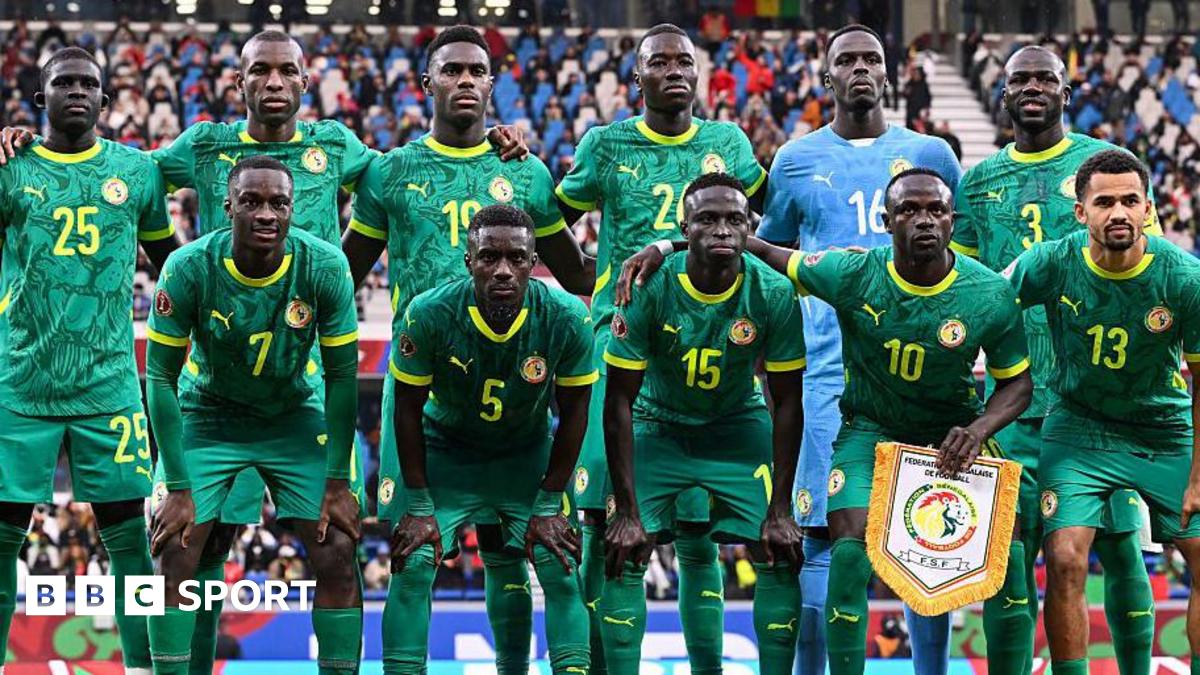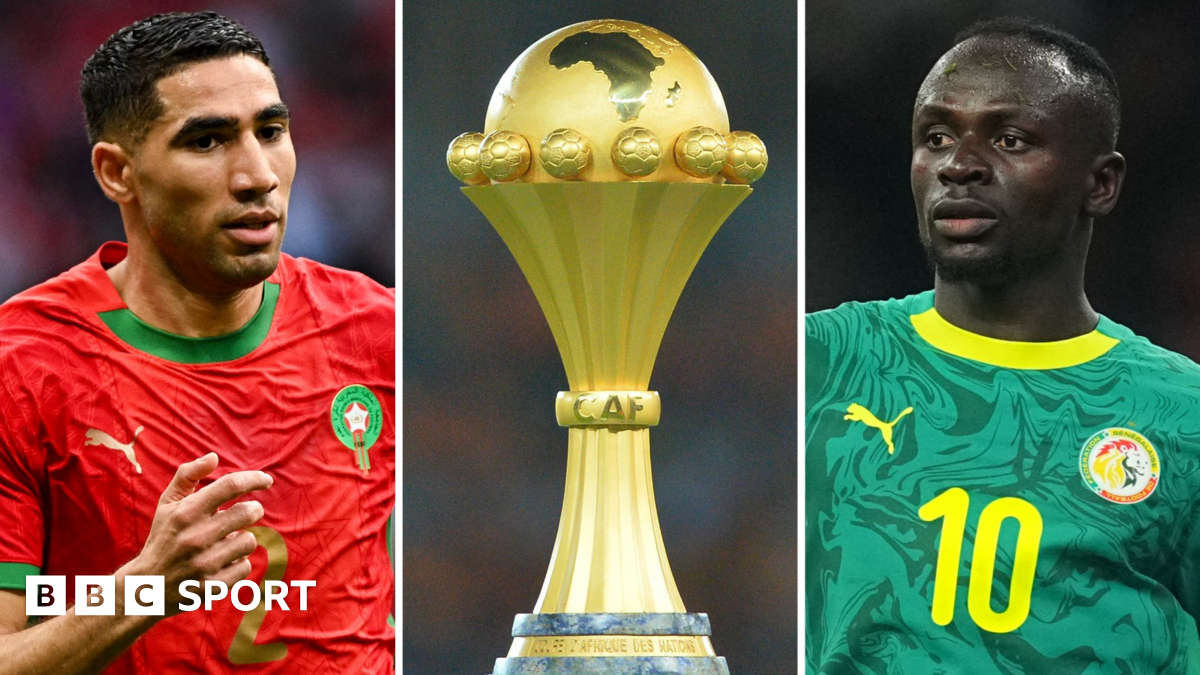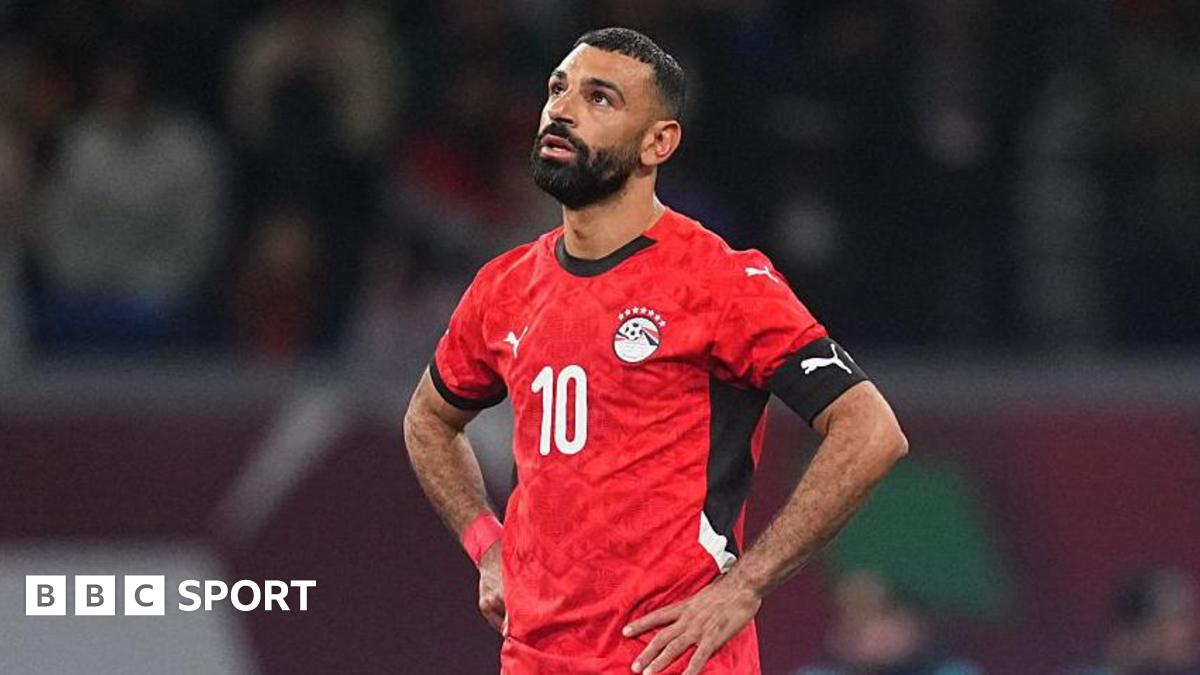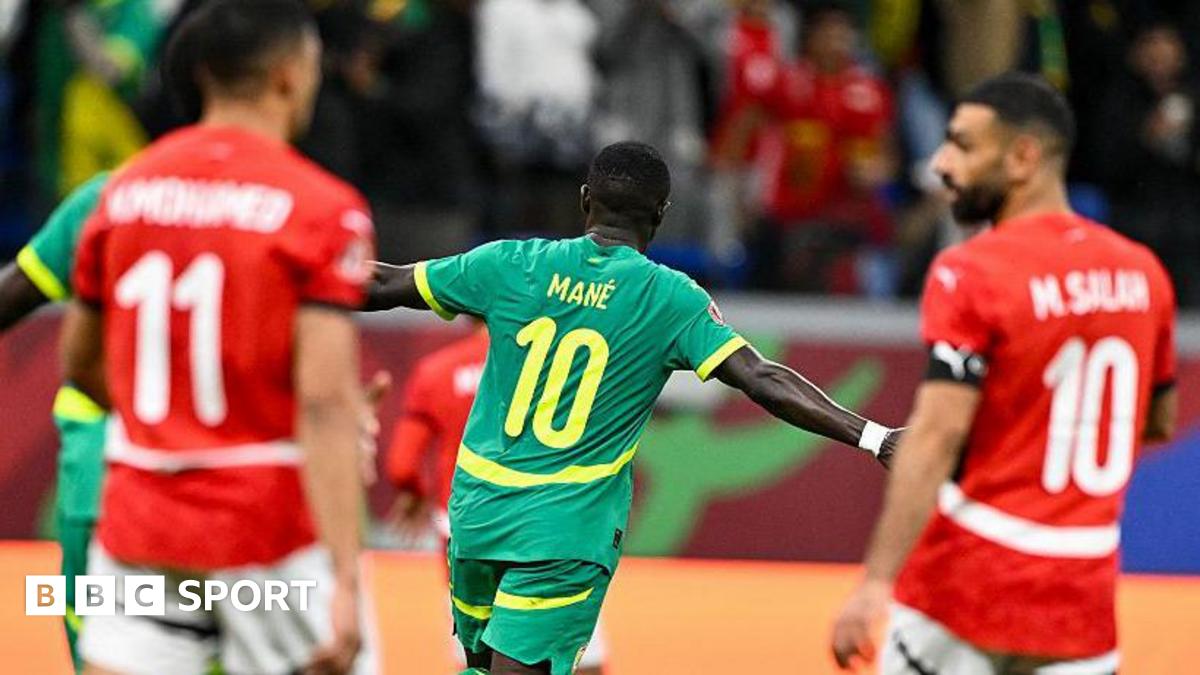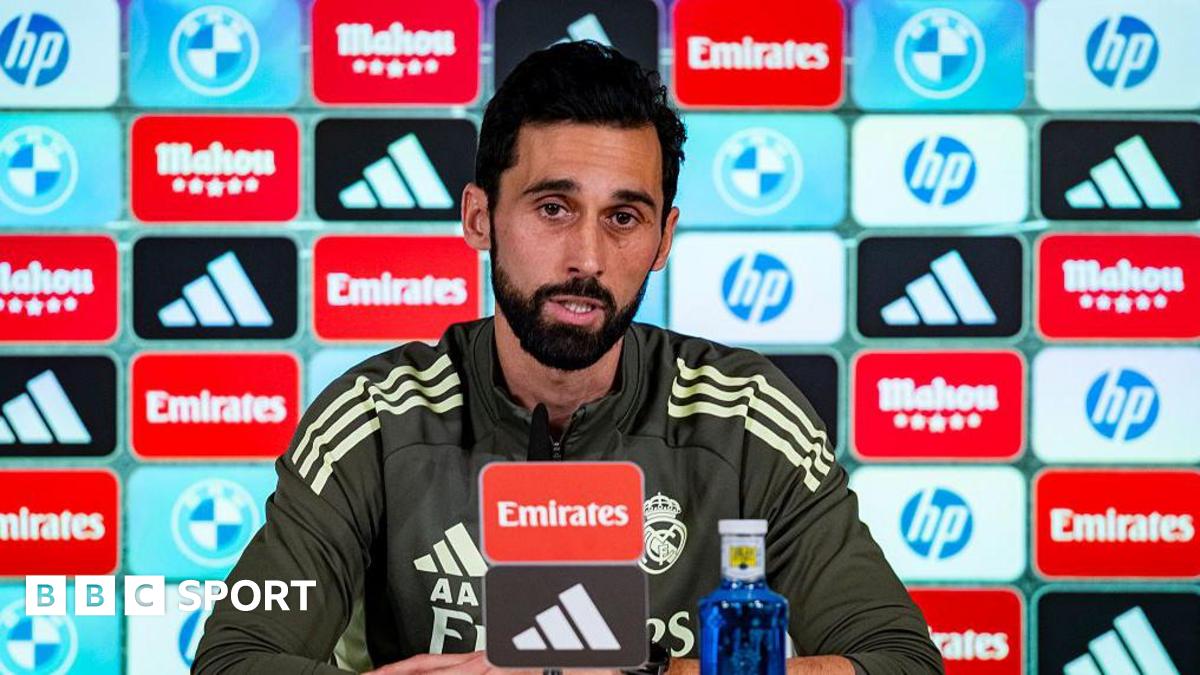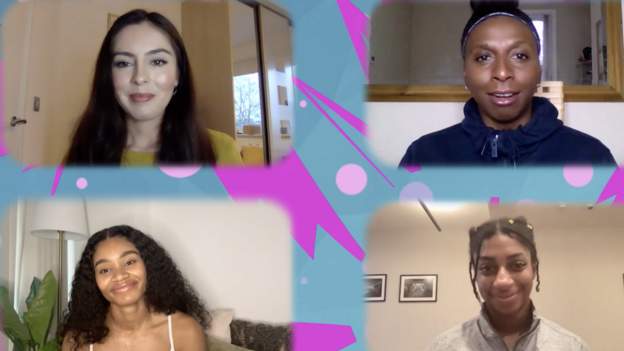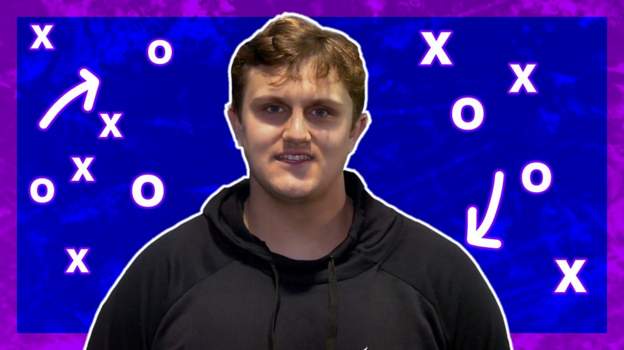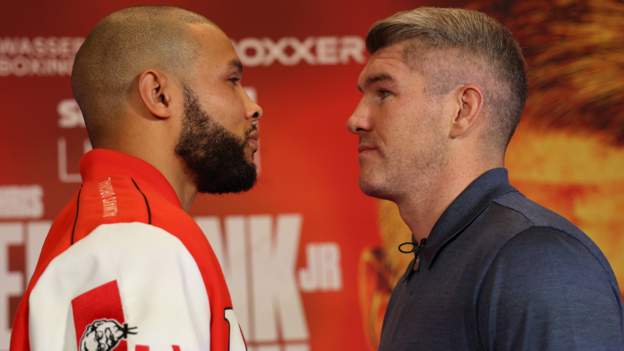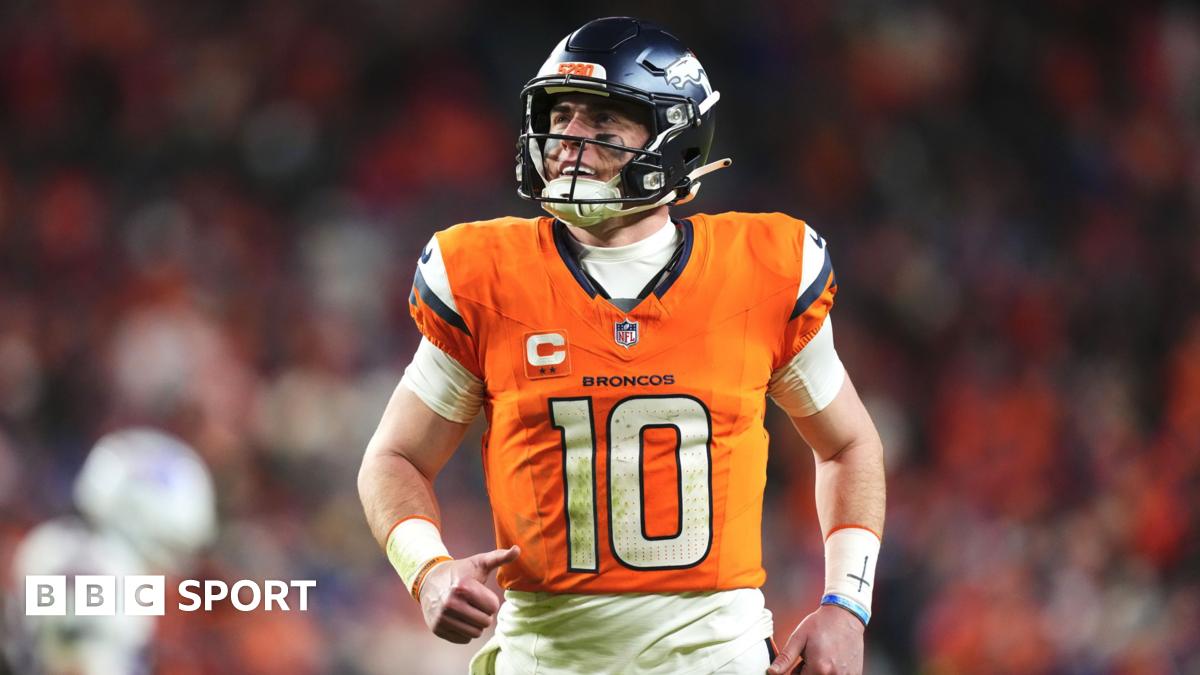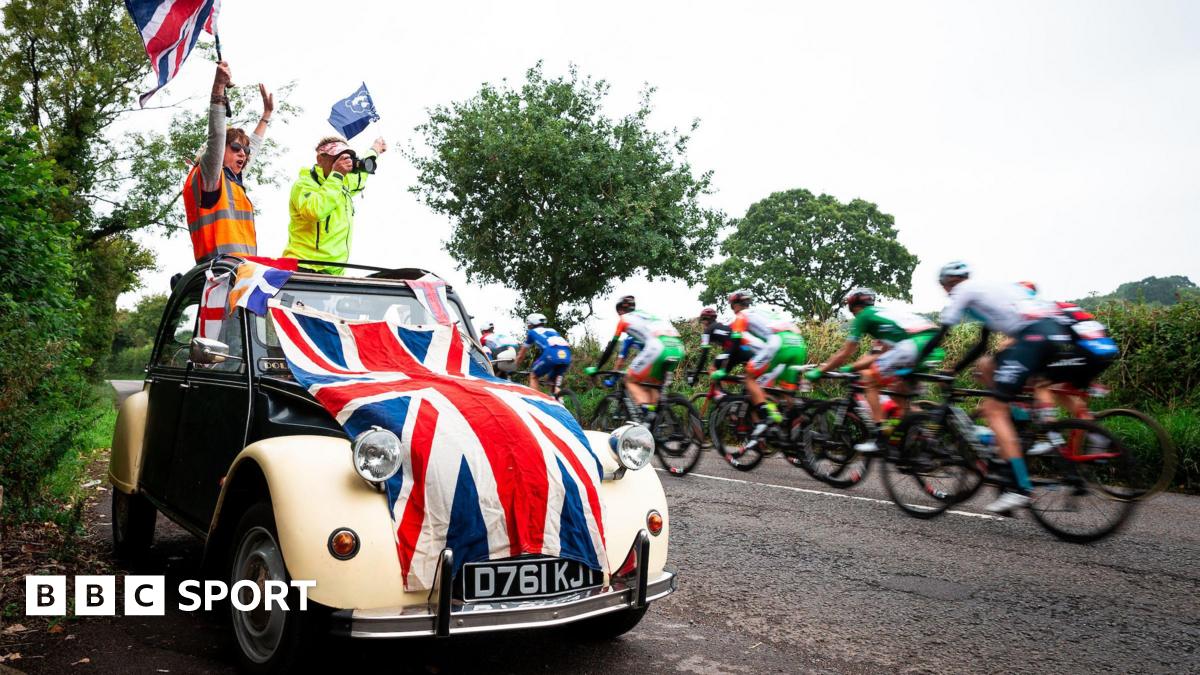After the death of George Floyd in 2020, sporting organisations and governing bodies all over the world started speaking more openly about race, diversity and inclusion. But how much have things actually changed?
BBC Sport hosted a video call with four-time Olympian and UK Athletics’ equality, diversity and engagement lead Donna Fraser, double Paralympic champion Kadeena Cox, and world silver 4x100m medallist Imani-Lara Lansiquot. Cox and Lansiquot are UKA athlete advocates.
Do you all feel more comfortable talking about race now?
Lansiquot: Absolutely. Racism isn’t something that just existed in 2020. It’s always been there. And I’ve definitely gone through situations in and out of GB kit where I felt less than because of the colour of my skin. And I think what is so great about dealing with such a tragic moment, like what happened with George Floyd, is having the world come together and talk about something that’s really uncomfortable. [It] creates this kind of loving and accepting space where you’re allowed to talk about this stuff. I think that in the past, I personally felt quite scared to do that. Because you don’t want to be put into a box or you don’t want people to lash out at you for speaking out. And I do feel like last year, we had this space where people were ready to listen.
Fraser: For us as an organisation we need to dig a bit deeper and embed [race, diversity and inclusion] in how we behave and how we speak to others. It’s all about people and treating people fairly and accepting them for their difference.
Diversity in athletics
Cox: With the athletes, there’s a lot of diversity. But when you look at the management, coaching and the boards, there’s not that much diversity there. I think it’s diversity within those roles that’s needed.
Currently, I think athletics is a lot further ahead of the curve than a lot of other sports. But that doesn’t mean there’s still not a long way to go. Because as we saw with [the UK Athletics sessions] let’s talk about race, there’s a lot of things that have come out where people have found challenges of, you know, feeling like they’re being treated in a way they shouldn’t be treated.
Is there as much diversity in the north?
Cox: It’s a stark difference [between the north and south of England]. Once you kind of get past doing the Yorkshire Championships, and the Northern Championships, and you go to the British Champs it’s like, ‘oh wow, diversity!’
Sometimes I feel like you have to be a different person – you kind of morph into that person that fits in. But we had that support network of each other; we all just seemed to move together. You just kind of cling to that community of people that understand you and are similar to you. Because it is very different in the north from what it is in the south.
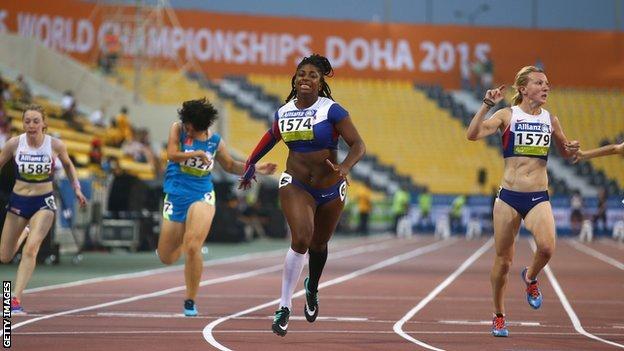
What kind of micro-aggressions or preconceptions have you experienced as black women within athletics?
Cox: One of the things that really does annoy me is just comments on my hair. Like ‘your hair’s not tidy’, or ‘Ooh, what’s this?’ Just little comments that I just think are so inappropriate. Sometimes I’m just like, ‘Is it really necessary?’ But you know, as a black female, you do learn to just brush these things off, which isn’t the way it should be.
Fraser: It’s for us to take responsibility ourselves and step up and say, ‘actually, no, that’s not right, what you just said. Are you aware that you offended me and so forth?’ And giving the confidence and creating that environment [where] people feel comfortable challenging back.
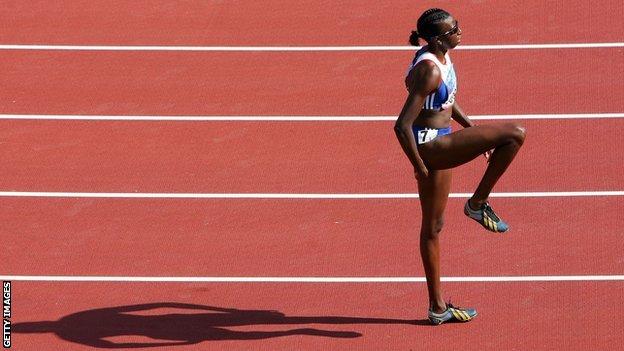
Lansiquot: There is a stigma and the stereotype around sprinters as it’s a very intense event. It’s quite an aggressive event. It’s a lot of testosterone, it’s quick. I think that after speaking to some ex-athletes and my team-mates, there is this feeling around being scared of being put into a box of the angry black girl. I think a lot of people were scared about that passion towards wanting to be number one and wanting to win. Especially when we come to relay stuff, you know, we’re really passionate about coming together and getting a medal or going for gold. And sometimes that’s being misconstrued as being a diva or being too aggressive. And I think that is something that definitely was common among black athletes.
Fraser: You’ve got to talk about the person not their characteristics. You won’t say there’s Imani the black girl, you’ll just say there’s Imani from Great Britain. It’s just the different terminology that is being used, the language that’s being used, and one of my gripes is when they always go on – because I’ve had it, I had it for years – about 36-year-old Donna Fraser, a veteran of athletics! Hello! I’m just Donna the athlete.
Cox: It’s really funny that you say that because I turn 30 next week and I’m worried that they’re going to commentate on the fact that I’m 30 at the Games.
Fraser: They will!
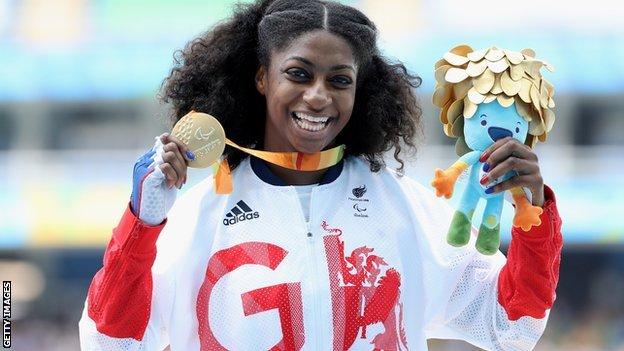
In the past year, and especially since 25 May and George Floyd’s death, how much have things changed within the sport?
Lansiquot: Hugely. Just having this space and this platform to talk about things that we never felt comfortable discussing in the past is a massive leap forward.
Cox: I feel like before I’ve made comments about how I felt in a certain country [when] someone said to me [that’s] disgruntled me, and nothing’s been done. And I think that then makes people not want to bother to come forward. But I think now one of the big things is that people feel comfortable to be able to say something and know that they’ve been heard. When we go to competitions, there is now someone that we can go to – you can go to everyone! Because everyone is being trained.
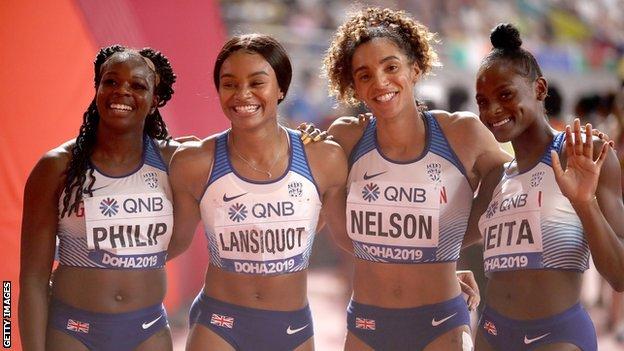
Lansiquot: Now, if you’re in a community where people aren’t used to seeing black people or you feel uncomfortable, you can talk to any member of staff whether or not they’re black. And they know what they need to do. This system makes a huge difference to how you’re able to perform. It’s small things like that, that push us forward as a sport. And that’s not to discredit the fact that we know we have a long way to go. But I do think that we should appreciate just how far we’ve come in the space of you less than a year. And we’ve made an action plan going up to the next Olympics that outlines exactly where we want to be in terms of diversity, inclusion and equality.
Fraser: I think we also need to recognise that when these athletes go to certain countries, and they have these awful experiences, we can’t change how that culture is there. We can’t do that. But what we can do as a national governing body is create that support network for them. So the fact that they can offload, park it and then get on with their performance, I think that is absolutely key.
The video call was hosted by Miriam Walker-Khan.


